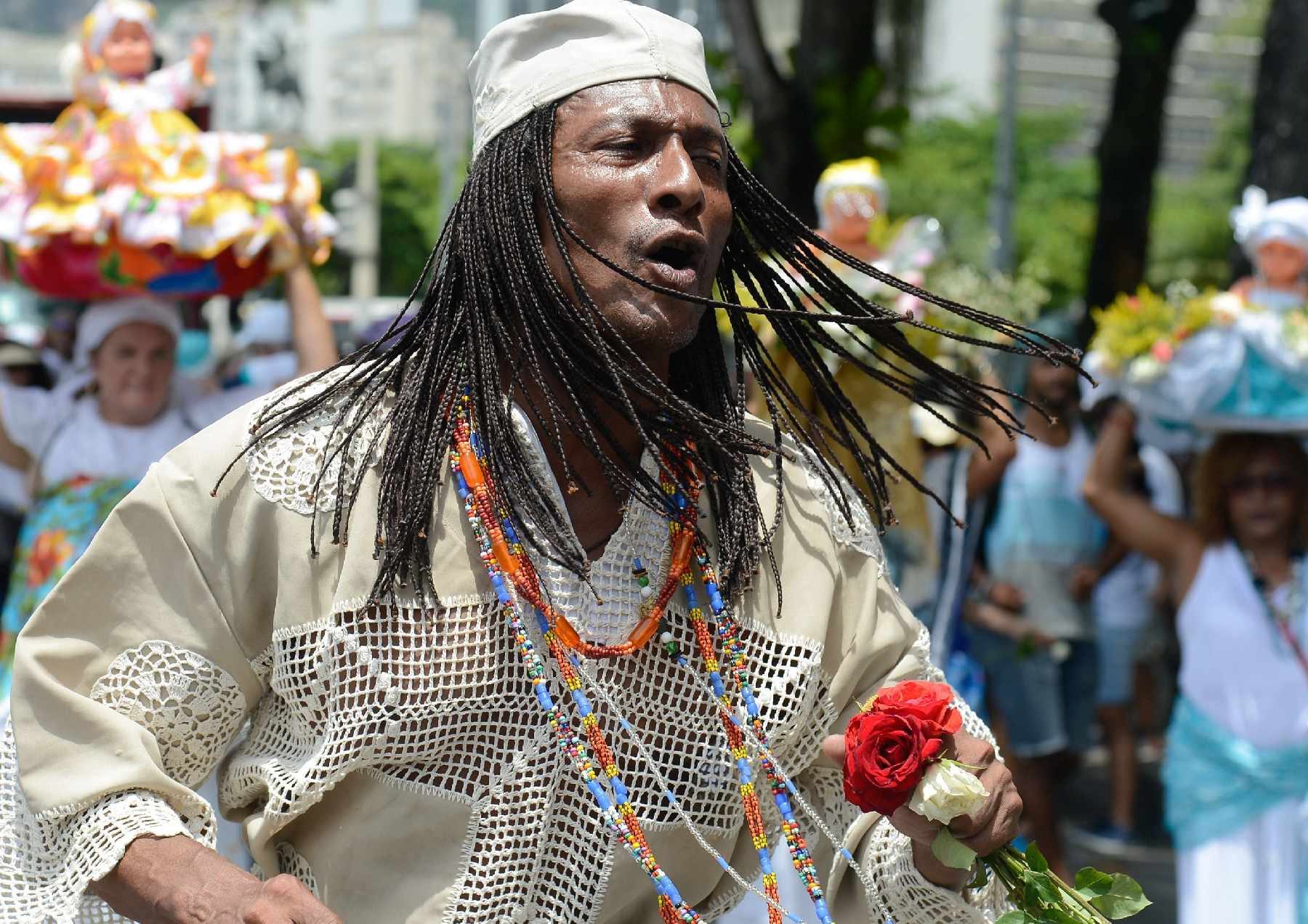Dolls, roses, herbs-of-grace, white palm leaves, and a lot of fruit lent their colors to the baskets filled with gifts, handed over to Iemanjá on Thursday (February 2). They were brought by her devotees who, as happens every year, gathered to celebrate the date dedicated to the “Queen of the Sea.”
They also came to make requests, say prayers, and show their gratitude for what they believe to be blessings from the orixá, worshiped by religions of African descent throughout the country.
In Rio de Janeiro, two festivities drew hundreds of people. One of them was held at the Praça XV district, where Atanízia Bispo, head of the Casa da Cultura Estrela d’Oya, organized a procession to fulfill a promise made over 20 years ago, when her newly born son’s life was at risk.
“I promised Iemanjá that, if he survived, I’d never give any gifts to him, but to her,” she explained. Five kilometers from there, Afoxé Filhos de Gandhi do Rio de Janeiro organized a celebration for the “Queen of the Sea” at the Valongo Docks.
Dozens of people joined the procession in Lapa and, for two kilometers, followed a float atop which musicians played and sang songs in Yoruba, waving at bystanders. Fireworks were also released as a means to “wake up” and celebrate the orixá, also known as Janaína.
Bahia, the Birthplace
Despite the scorching sun and the heat of over 30ºC in Salvador, state capital of Bahia, thousands of residents and tourists took part in the celebrations for Iemanjá.
The party is organized by the Colônia de Pescadores da Praia de Santana, in Rio Vermelho, where both the faithful and the fishermen spend the night carrying offerings to the sea.
Shortly before dawn, a 1.5m-tall statue of Iemanjá was brought on a wooden scaffold surrounded by flowers and with a space for more offerings to the honored divinity.
According to tradition, fishermen first gave offerings to Iemanjá in 1923, after a spell of scarce fish. After that, requests were granted and ever since then, on a yearly basis, fishermen hand over their offerings to show gratitude and make further requests for abundance and calm waters during their work.
The line for delivering the gifts to Iemanjá stretched from Paciência beach all the way to Santana beach, where the tributes could be seen taking place next to Casa de Iemanjá and the headquarters of the fishermen’s colony.
Irene Moscalenco, retired, waited for over an hour to deliver the flowers to the orixá. “I come here every year and the flowers I bring are a token of my thankfulness.”
Syncretism
Despite being organized by Candomblé practitioners, the festivities in Rio Vermelho cast light on Bahia’s religious syncretism by bringing Catholics, Spiritists, and faithful from several Afro-Brazilian faiths.
Even those who profess no specific religion attended the celebration to greet the “Queen of the Sea,” as they acknowledge the importance of the date for the devotees.
In full traditional attire, with a bulky white skirt, Ialorixá Jacira Ferreira never walked away from the 1.5m statue of Iemanjá during the ceremony, which stood on a flowery scaffold.
She would receive the flowers from Iemanjá’s devotees and add them to the flowers ornamenting the statue. Her delicate gestures conveyed calm and serenity, which she says comes from Iemanjá herself.
After each flower is arranged in position, a lavender-scented liquid is sprayed onto the objects.
“She gives us energy, because we work contentedly to thank her for providing the livelihood of our families throughout the year,” said an 80-year-old fisherman attending the festivities.
ABr

